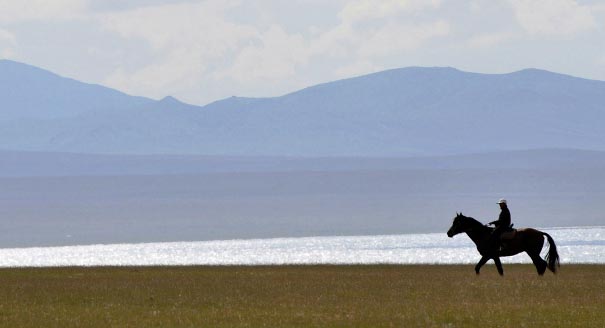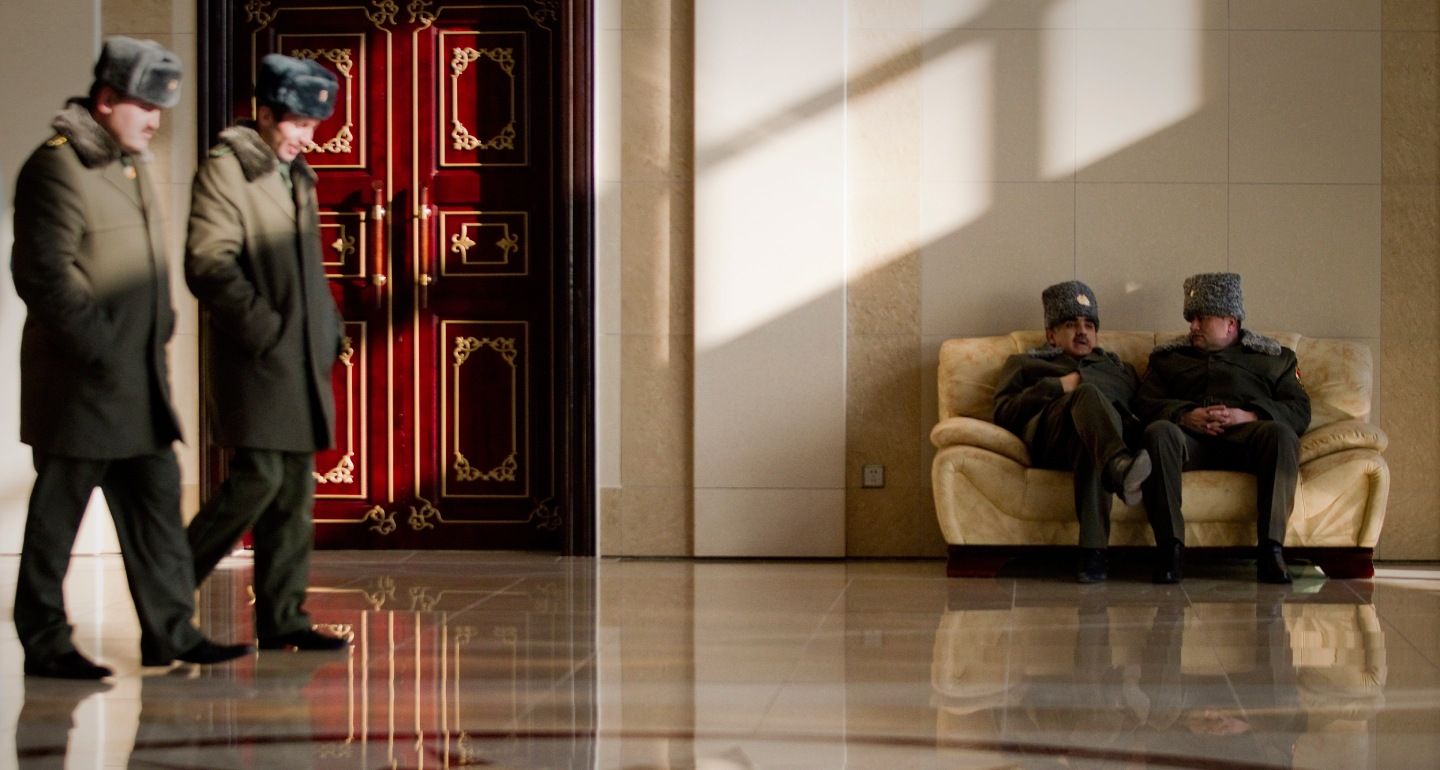Martha Brill Olcott
{
"authors": [
"Martha Brill Olcott"
],
"type": "legacyinthemedia",
"centerAffiliationAll": "dc",
"centers": [
"Carnegie Endowment for International Peace",
"Carnegie Russia Eurasia Center"
],
"collections": [],
"englishNewsletterAll": "",
"nonEnglishNewsletterAll": "",
"primaryCenter": "Carnegie Russia Eurasia Center",
"programAffiliation": "russia",
"programs": [
"Russia and Eurasia"
],
"projects": [
"Eurasia in Transition"
],
"regions": [
"Central Asia",
"Kazakhstan"
],
"topics": []
}
Source: Getty
Challenges in Studying Collectivization and the Famine
The study of the Soviet drive toward collectivization in Kazakhstan and the resulting famine comes with a particular set of challenges.
Source: Remarks given at conference on “Famine in Kazakhstan

During the Soviet period it was of course virtually impossible to try and pursue objective research on this topic. Communist Party and Ministry archives were either closed, or made very selectively available to the most trusted of party loyalist historians. And even they could not deviate from “official” interpretations, which varied fairly substantially through the Stalin, Khrushchev, and Brezhnev periods and then changed regularly during the final nine years of Soviet rule.
When I did my research on this period of history, during the middle of the 1970s I considered myself very fortunate to have gained access to all the periodical and other printed materials from the 1920s and 1930s that had been deposited in the special collections of Lenin Library.Now of course a great deal more material has been made available, with scholars having some chance of securing access to archival materials that are found in Kazakhstan as well as archival material found in Moscow. But this increased access to materials has in many ways complicated the tasks before the historian of this period rather than simplified it.
For all their value access to archives will only tell part of the story, as they recount the debate over policy and the process of its implementation that the historical actors who wrote these accounts sought to commit to paper. This by definition makes the material that they convey subjective rather objective, and is likely to only be part of the story that unfolded at the time, and not even an accurate one. Most of us have had on various occasions in our professional careers the responsibility to create reports or accounts for our superiors, and we know the temptation to shape events in a way that makes it appear that we are meeting their expectations. So using archives creates new responsibilities for the historian, to find multiple accounts which offer almost identical information, in order to build confidence that any particle version of history is in fact accurate.
Given what a painful period collectivization and the famine was for the Kazakh people it is hard to keep emotions out of the study of these events, and there is a natural desire to apportion blame for them.
One of challenges for the historian will be to manage to keep emotion at bay.
I would like to focus on two suggestions in this regard. First it is critical for the objective study of collectivization and the famine to put the policies pursued in Kazakhstan in the context of Soviet-wide policies. There is no question that the Kremlin never paid attention to the specific cultural and economic needs of the various regions of the U.S.S.R., and then reacted very inadequately when it became apparent that the policies of collectivization were having a devastating effect on the majority of the Kazakh population. But one must be careful not to presume that these policies were designed to annihilate any particular ethnic group. But tragically the obverse was also not true, Moscow was unwilling to take any remedial steps to stop such annihilation when it became apparent that in Kazakhstan this was precisely what was in the process of occurring. The goals of the revolution, as interpreted by Stalin and the small group around him, were preeminent and tragically more important than the survival of people.
Finally, there are the risks associated with apportioning blame for what occurred. In some recent scholarship there has been a tendency to try and apportion blame, on this or that party official who came from outside the republic. Unfortunately the burden of responsibility for the pursuit of the policy of collectivization and the ensuing famine has to be shared among many who served in the party, from the highest levels to the lowest, as all to some degree continued to implement a policy which they knew was resulting in the substantial loss of human life from starvation. The choices they faced were bleak; apply policies and even feign enthusiasm for them even when they knew that others would be direly affected by these policies, or risk their own arrest and possibly that of their families. There were few heroes to be found in those years, and one should be wary of standing in judgment of the actions of human beings who faced the most difficult of choices. We should all also be thankful that we don’t face such choices today.
About the Author

Former Senior Associate, Russia and Eurasia Program and, Co-director, al-Farabi Carnegie Program on Central Asia
Olcott is professor emerita at Colgate University, having taught political science there from 1974 to 2002. Prior to her work at the endowment, Olcott served as a special consultant to former secretary of state Lawrence Eagleburger.
- After Crimea: Will Kazakhstan be Next in Putin’s Reintegration Project?In The Media
- China’s Unmatched Influence in Central AsiaArticle
Martha Brill Olcott
Recent Work
Carnegie does not take institutional positions on public policy issues; the views represented herein are those of the author(s) and do not necessarily reflect the views of Carnegie, its staff, or its trustees.
More Work from Carnegie Endowment for International Peace
- Where Does the Split in the Ruling Tandem Leave Kyrgyzstan?Commentary
Despite its reputation as an island of democracy in Central Asia, Kyrgyzstan appears to be on the brink of becoming a personalist autocracy.
Temur Umarov
- In Uzbekistan, the President’s Daughter Is Now His Second-in-CommandCommentary
Having failed to build a team that he can fully trust or establish strong state institutions, Mirziyoyev has become reliant on his family.
Galiya Ibragimova
- Afghanistan–Tajikistan Border Clashes Pose a Dilemma for MoscowCommentary
While the fighting continues in Ukraine, Moscow will seek to avoid getting drawn into guaranteeing security on the long border between Afghanistan and Tajikistan.
Temur Umarov
- Ukraine Risks Alienating Allies With Oil Infrastructure AttacksCommentary
Inflicting damage on oil infrastructure in Russia that is used by Kazakhstan and a whole series of Western oil majors risks backfiring on Kyiv.
Sergey Vakulenko
- What’s Behind Electoral Reform in Kyrgyzstan?Commentary
The abolition of party-list voting doesn’t mean Kyrgyzstan’s parliamentary elections will be free of intrigue and competition. It’s just that they will likely unfold behind closed doors.
Galiya Ibragimova







